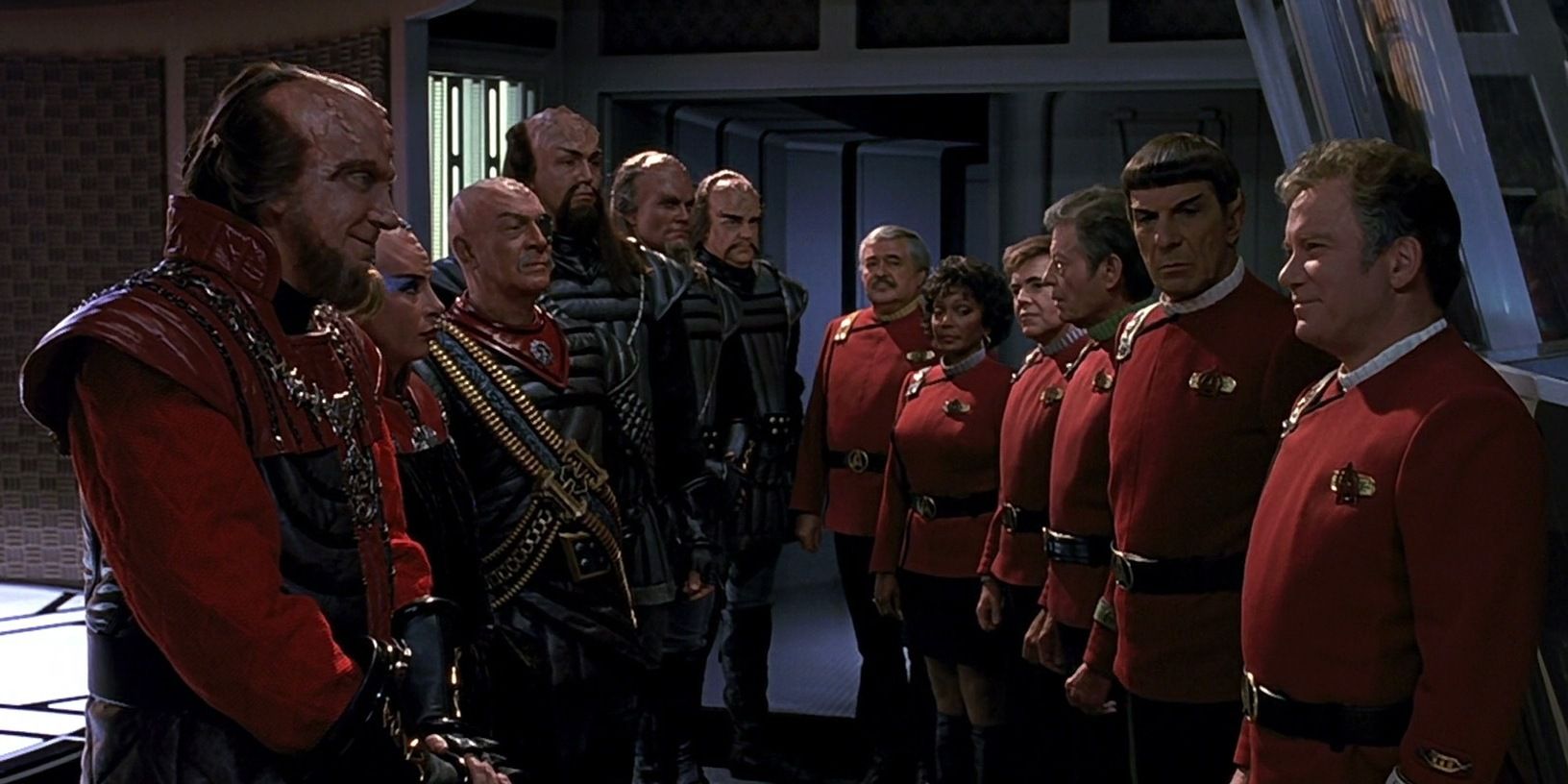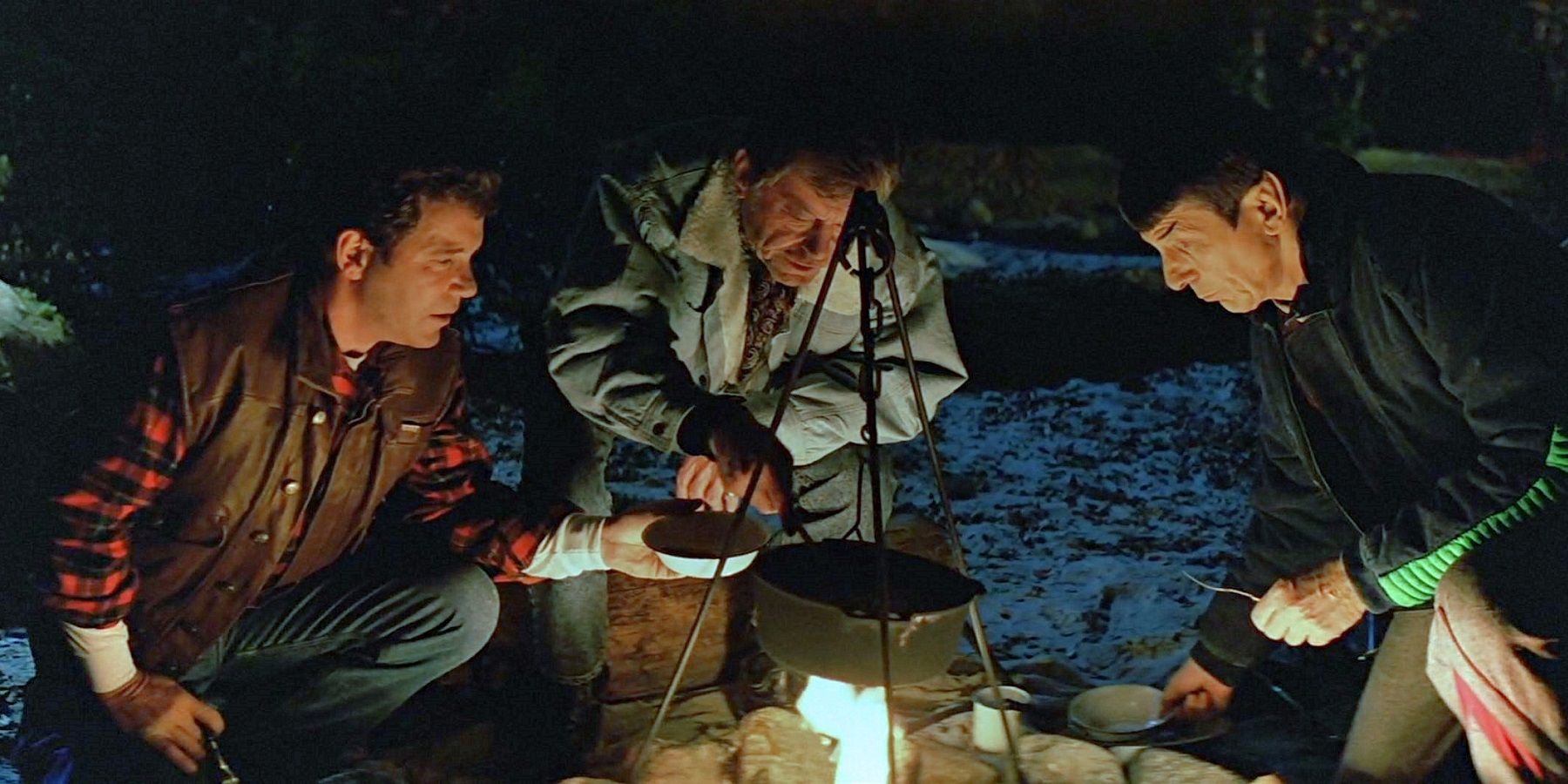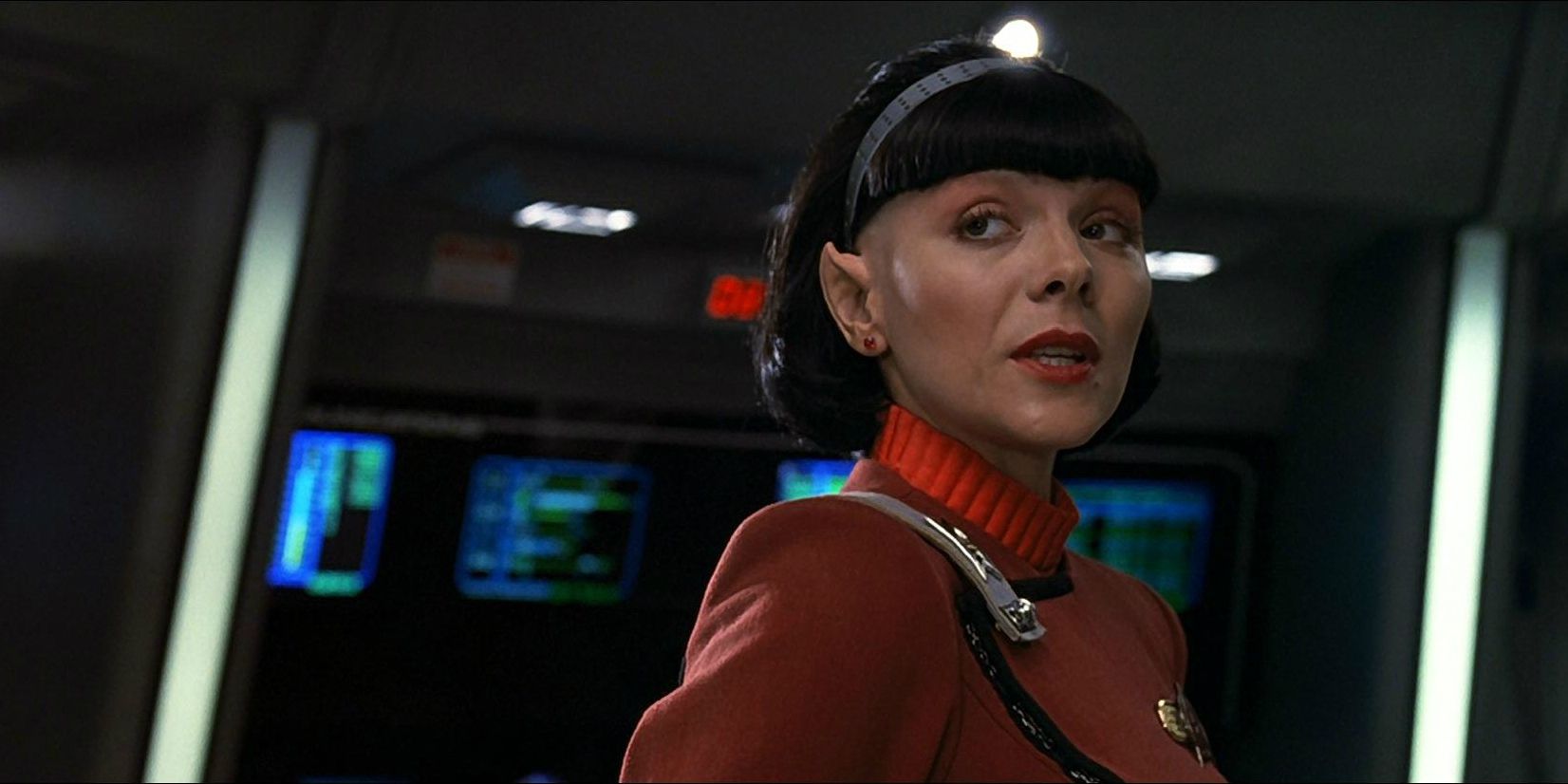When evaluating the Star Trek movies featuring the original cast, even-numbered installments like The Wrath of Khan or The Voyage Home always rank near the top. However, Star Trek VI: The Undiscovered Country is a franchise peak and perhaps its most timeless story. It was more than just a strong swan song for fans' first Enterprise crew; it's a parable about change that applies to almost any situation.
The Undiscovered Country, directed and co-written by Nicholas Meyer, went through many revisions both at the behest of the studio and the cast. The film he made ended up being perfect, if only because of how the story incorporated the end of the Cold War into its tale of peace with the Klingons. None of the characters are underserved, especially Captain James T. Kirk. Unlike some of the previous films, even with the dire circumstances, it's a fun film. However, the movie's story works beyond the Cold War allegory. It's a film about the way big, frightening change can make good people do awful things. It also deals with how even people who've dedicated their entire lives to achieving progress can balk when the world around them starts to look different.
Kirk, Spock and McCoy Represent Different Approaches to Big Changes
Three beloved Star Trek characters each take a different approach to change. Spock, driven by logic and a commitment to Starfleet ideals, represents the elder guard actively pushing for change. He sees the tragedy of the Klingons' self-imposed destruction as an opportunity for peace. Doctor Leonard McCoy, Spock's most common foil, is the skeptic. Equally committed to saving lives and peace, McCoy is hopeful Spock's plan could work but doesn't have enough faith in people to see it through. Captain Kirk, however, is intransigent. "Let them die," he spits at Spock in an early scene at Starfleet headquarters, a line that the movie's villain throws back at him when their quest for peace is almost upended.
Even before the Klingons killed his son, Kirk was an outlier in Starfleet. The Season 1 finale of Strange New Worlds centered its story on why Kirk was the captain the "cold war" era of Starfleet needed. Ending conflicts diplomatically and without violence is the Starfleet way. But Kirk? His way usually includes more explosions. He's not being asked to change; rather, it's being forced on him at a time when Starfleet is drumming him, and his ship, out of service. The new world doesn't need men like him, meaning he could have just as easily joined the villains. Ironically, other intransigent members of Starfleet and the Klingon Empire entered into an alliance to keep the war going.
The moral of The Undiscovered Country applied directly to the Cold War and, more broadly, to long-running geopolitical conflicts. But it can also apply to other big societal changes, from equal marriage to an accurate, inclusive presentation of history. Whether one is a Spock, a McCoy or even a Kirk, the film lays out clear guidance. Change is inevitable, and resisting it only leads to hurting those one cares about most.
Star Trek VI: The Undiscovered Country Offered a Bleaker Story Than Reality
The conflict in The Undiscovered Country is mostly fiction, but it draws from real-life inspiration. The reformist leader of the Soviet Union, Mikhail Gorbachev, faced at least one assassination attempt a year before the movie. Star Trek's Klingon version of the character, David Warner's Chancellor Gorkon, is killed in the film. Yet, the purpose of that story is to bring Kirk in line with Spock and McCoy on the value of peace and lead him to confront his own prejudices. It's that aspect of the story that can be applied more generally. There is always an element resistant to positive change, sometimes militantly. It always leads to those people becoming the very thing they fear. It is a lesson applicable to almost any modern societal problem.
What makes Star Trek VI so special is how the end of The Original Series cast's era coincided with the end of the Cold War. Kirk and even the Enterprise become relics of a soon-to-be-bygone era. However, The Undiscovered Country is a film about the future and a study of the way people try to fight it. Even these storied officers in Starfleet, some of the most enlightened people in the galaxy, are hesitant in the face of progress. What makes them heroes is that they continue to fight for it anyway.



